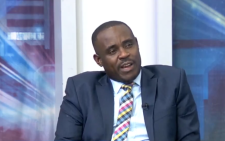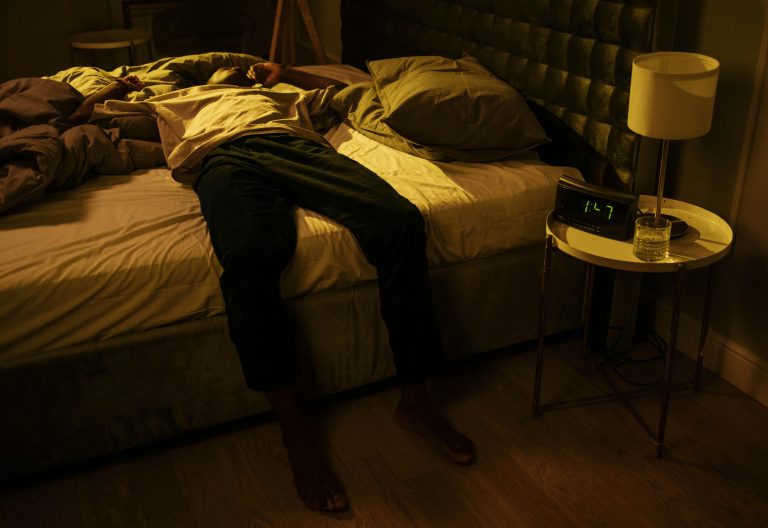Are you engaged in emotional incest?

That it is a struggle to date a mama’s boy is something Terry Atieno, 30, learnt the hard way.
To be in an intimate relationship with such a person feels like walking right in to another relationship and becoming the third wheel.
And if the man does not set boundaries, the relationship is set for an epic fail.
“I had to eventually opt for separation. I could not compete with my mother-in-law.
I loved him and equally understood that his mother had single handedly raised him, and he was an only child.
But every time she visited, I felt as if I was being ganged upon. They would hang out for talks way into the night in the guest room where the mum was supposed to sleep.
As a matter of fact; he would even fall asleep in the same bed with his mother,” she says.
Atieno adds that every time they had a problem, he would run to his mum instead of talking it out with her.
“We had zero privacy and it was constantly terrifying because she already did not like me much.
The worst part is when I complained about the behaviour he would say, ‘I have no one else to talk to about my issues, but her’.
They had intimate talks and it just was too much for a mother-son bond. Toxic triangle I say.
I had to take a while to detox from all that and as at now, I would rather date an orphan than a mama’s boy,” she says.
Most parents might not know this, but relying on your child for your emotional needs might have dire consequences.
While it might reflect even more in adulthood, emotional incest is initiated at childhood and follows people through adulthood if a healthy intervention is not found.
This is what later evolves into unhealthy relationships such as the popular mama’s boy.
Emotional incest is when a caregiver looks for emotional and psychological support from their child that should be found in a spouse.
This could be a young child or an adult child. However, often, the pattern starts when children are young and continues until they are adults.
Psychologist Tracy Nyaguthii says in emotional incest, boundaries are crossed and the caregiver shares inappropriate information with their child.
For instance, their sexual lives, marital issues, life stressors and they can be obscene with language.
“Basically, it’s a violation of a child’s innocence. Emotional incest is a form of abuse.
Roles are reversed, the child is treated like an adult and they do not get the emotional and psychological support they need from their caregiver.
In this situation the caregiver leans to the child for guidance, affirmation and support,” she says.
She adds that emotional incest could be so intrusive to the extent that the caregiver interferes with the child ’s social life.
Selfish restrictions
“Caregivers do not want them to spend time with their peers; they want them all to themselves.
Taking adult roles and having selfish restrictions imposed on a child for the benefit of the caregiver creates a heavy burden on the child that can cause many psychological and behavioural problems.
For instance, trust issues, relationship problems, emotional distancing, sexual addictions, feelings of guilt, shame, self-esteem issues, and difficulty in engaging in appropriate behaviour with children etc,” she adds.
According to the expert, many factors bring about emotional incest. For instance, where there is drug abuse, where caregivers are immature, emotionally detached, where caregivers have mental and physical health decline and need support from their child.
However, often, it occurs when caregivers are going through a transition in their lives.
These transitions could be a divorce, separation, infidelity, loss of a spouse, change in family dynamic, or lack of an emotional relationship with an adult.
Individuals displaying such behaviour could also have undergone the same as children and, therefore, could think it is normal.
Life coach, Allan Lawrence, adds that emotional incest has more dangers as the child is not given a chance to be a child and grow like other children. It affects the child to a point they see the world negatively and this follows them into adulthood.
“Emotional incest completely changes a child’s perception of the world. They will always find it hard to relate well, which will later affect their relationships because they will have a distorted mindset about the opposite gender. It becomes hard for them to trust their partners.
They will be emotionally unavailable, which will cause a lot of friction. And later on in marriage set up, they will become so much inclined to their children because the culture has already been created,” he says.
As a word of advice, Nyaguthii says it is important for persons who have experienced emotional incest to undergo treatment with therapists who have vast experience with working with trauma.
“The therapist will take them through an in-depth healing process where they deal with the trauma, its effects in their life as well as their behaviour and thought patterns.
Treatment should enable the client to deal with the trauma that lies deep within them from when they were children or when the pattern started.
It needs time, however with the right support, people recover and are able to have a fulfilling life,” she says.












